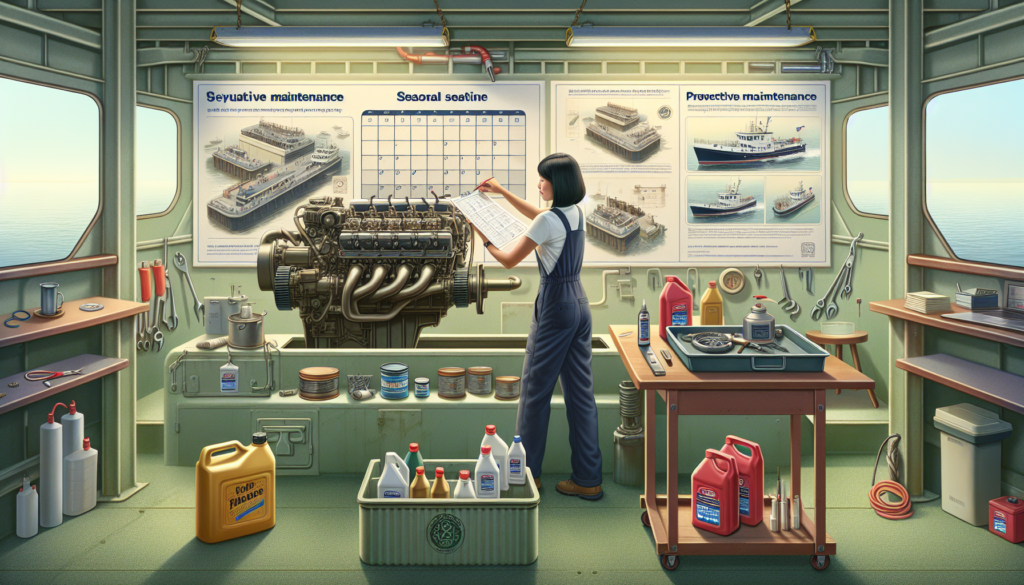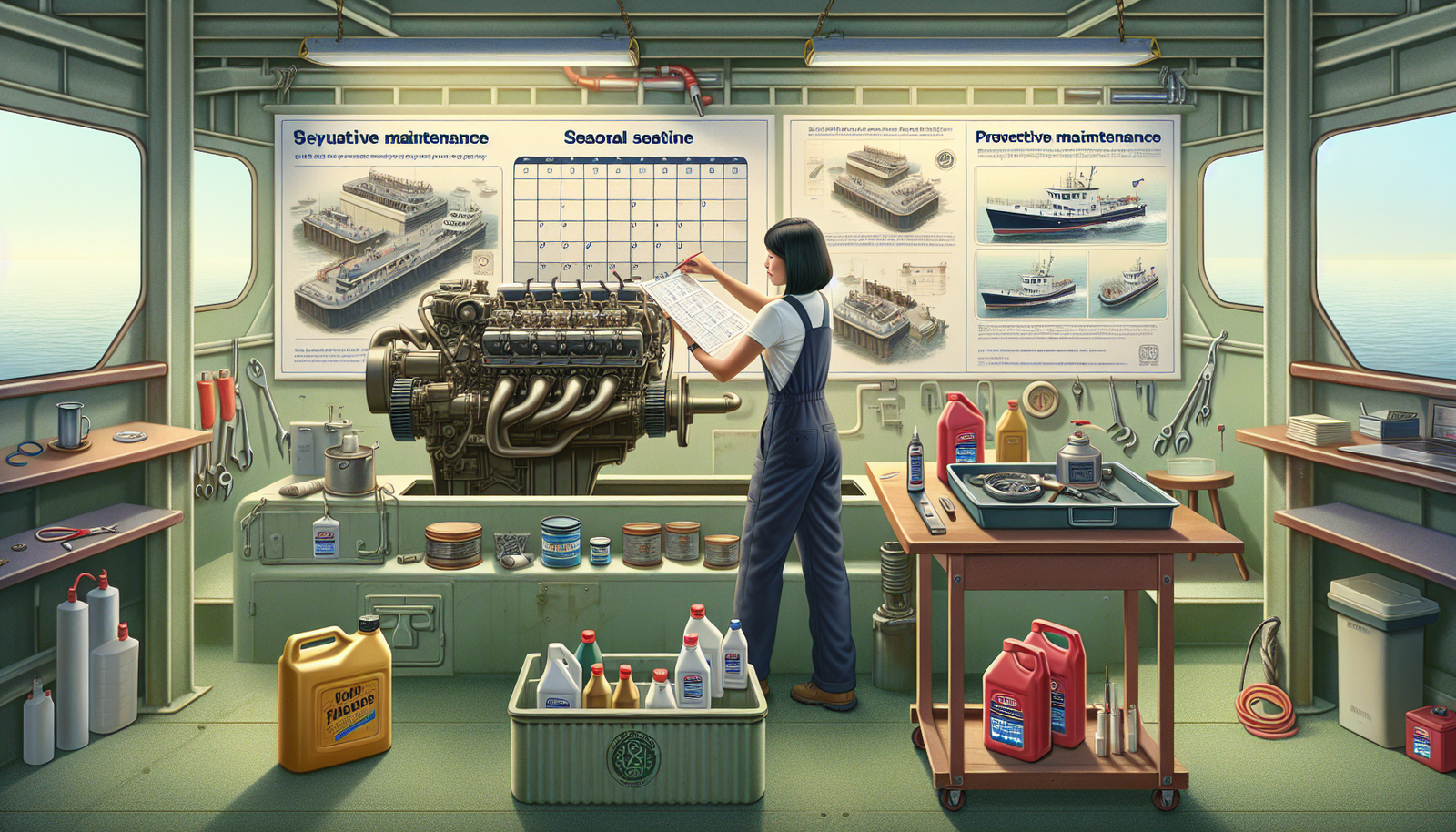Taking care of your boat engine shouldn’t break your bank; you’ll be surprised at how implementing a few tricks can significantly reduce your maintenance costs. This article covers the top ways you can save money on boat engine maintenance while ensuring its longevity. From regular engine check-ups to using the right fuel, learn how to efficiently manage your boat’s engine, leaving you with extra cash and a machine running in its top-notch condition. Your days of expensive maintenance are over! So brace yourself for a transformative journey in boat engine maintenance.
Understand the Importance of Regular Maintenance
Boating is an exquisite privilege, but it’s quite an investment – especially when it comes to maintaining your boat’s engine. Therefore, understanding the importance of regular engine maintenance is imperative. Don’t overlook it as an unnecessary chore but rather, see it as a preventive step designed to preserve your engine’s health and longevity.
Why regular maintenance is crucial
Just like your automobile, regular maintenance of your boat’s engine is crucial. Without it, hidden issues can progress into major problems, eventually leading to costly expenses for repairs or replacements. Furthermore, an unkept engine could trap you in dangerous or compromising situations while out at sea.
Long-term cost benefits of engine maintenance
Maintaining your boat engine can provide enormous long-term cost savings. It enables you to foresee potential issues that could lead to mechanical breakdowns. By addressing these issues promptly, you can avoid more extensive, and expensive, repairs down the line.
How maintenance affects boat engine lifespan
Regular maintenance plays a pivotal role in the lifespan of your boat engine. Lubricating, fueling, and cleaning the engine, in accordance with the manufacturer’s instructions, can dramatically prolong its life. In the long run, this can save you from premature engine replacement, hence saving you money.
Engine Inspections: A Cost-Effective preventative measure
While the idea of conducting engine inspections may seem like a daunting task, it’s a cost-effective preventive measure that should be embraced.
What to look for during an inspection
Your regular inspections should fundamentally be about thoroughness and attention to detail. Look for loose fittings, leaks, and anything out of the ordinary. Listen for unusual noises when the engine is running and investigate their source. These anomalies may indicate underlying issues.
Assessing common wear and tear
Engines experience wear and tear no matter how well you maintain them. Regular inspections allow you to assess this wear and tear, helping you determine when it’s time for replacement parts. This is a far better alternative than waiting for a part to fail completely, potentially damaging other engine components in the process.
Spotting potential major issues early
Conducting regular inspections is about spotting potential major issues at an early stage. Catching problems such as corrosion, oil leaks or worn belts early on can prevent costly repairs or replacements. Moreover, it reduces the risk of engine failure while out on the water.

Getting Familiar With Your Boat Engine’s Manual
One of the best ways to keep your boat engine in optimum condition is by getting familiar with its manual.
Understanding your boat’s specific needs
Different boat engines have different needs. The manual provides precise instructions for your boat’s specific make and model, ensuring optimal performance and reducing the risk of damage. Understanding your boat’s specific needs will enable you to properly take care of it, reducing unnecessary wear and tear.
Benefits of following the manual’s guidelines
Following the manual’s recommendations can save you a considerable amount of hassle and expense. Adhering to the suggested maintenance schedule, using the right type of fuel and oil, and knowing how your engine operates can keep your boat running smoothly for years.
Saving money by knowing how to handle minor issues
Knowing how to handle minor engine issues can also save you money. Your engine’s manual may have a troubleshooting section, which can guide you in diagnosing and rectifying minor problems without needing to escalate to a mechanic.
Invest in Quality Fuel and Oil
While it might seem tempting to save money by opting for cheaper fuel and oil, this can actually cost you more in the long run.
How quality fuel and oil enhance engine performance
Quality fuel and oil are crucial for enhancing engine performance. They ensure complete combustion, reduce buildup, and safeguard against unnecessary wear and tear in your engine’s moving parts.
Cost benefits of using premium fuel and oil
Despite the higher upfront cost, using premium fuel and oil can result in savings down the line. It can also boost the performance of your engine, enhancing your overall boating experience.
Potential damage from cheap fuel and oil
Using cheap fuel and oil can cause damage to your engine, leading to costly repairs or replacements. Impurities found in low-quality fuel and oil can build up over time, leading to a reduction in performance and, ultimately, damage to your engine.

Handle Minor Repairs Yourself
Owning a boat means you’re inevitably going to face minor repair tasks. Instead of outsourcing these jobs, learn to handle them yourself to save money.
Simple repairs every boat owner should learn
Certain tasks, such as changing the oil or replacing the fuel filter, can be easily learned and accomplished without professional help. It’s these small repairs that can save you a lot when accumulated over a period of time.
Cost-effective tools for minor engine repairs
Investing in some basic tools can be cost-effective in the long run. A well-stocked toolbox can empower you to handle minor repairs yourself, saving you the expense of unnecessary mechanic visits.
Tips for working safely on your boat engine
Always prioritize safety. Ensure you have the right safety gear, work in a ventilated area, and never attempt repairs you’re unsure of. If in doubt, it’s always better – and potentially cheaper – to seek professional help.
Proper Engine Winterization
For those of you faced with the icy grips of winter, proper engine winterization is a key process that should never be overlooked.
Why winterization is important
Winterization involves prepping your boat’s engine for a period of inactivity during the winter months. It’s important to prevent corrosion and condensation issues, which can arise due to temperature changes and engine disuse.
Essential steps in the winterization process
These include changing the engine oil, applying anti-corrosion sprays, disconnecting the battery, and more. Failure to properly winterize your engine can result in significant damage, leading to expensive repairs come springtime.
Cost benefits of proper winterization
The cost of properly winterizing your engine is a fraction of what it could cost you if damage results from negligent neglect. The adage, “an ounce of prevention is worth a pound of cure”, holds true when it comes to winterization.
Choosing a Reliable Engine Maintenance Service
When outsourcing your boat’s engine maintenance services, it’s crucial to choose a reliable service.
Signs of a trustworthy service
Look for services with certified technicians, positive customer testimonials, and a healthy track record. You want assurances that your engine is in capable hands.
Price vs. quality in engine maintenance services
While cost is always a factor, don’t compromise on quality. It may be tempting to choose cheaper services, but this could end up costing more if inferior maintenance results in damages.
How routine maintenance services can prevent expensive repairs
Rely on routine maintenance services for more complex tasks. Regular inspections, repairs and part replacements can save you from major breakdowns and expensive repairs in the future.
Efficient Care of the Propeller
Your boat’s propeller requires efficient care as it plays a significant role in your boat’s performance.
Routine propeller checks
Routine checks for propeller damage such as cracks, dents or distortions can prevent long-term damage that could impair your boat’s performance.
Proper propeller care and maintenance
Ensure your propeller is regularly cleaned to prevent buildup of marine growth. Moreover, be sure to use marine grease on the propeller shaft to avoid corrosion.
Potential costs of a neglected propeller
A neglected propeller could hinder your boat’s performance and fuel efficiency, leading to higher costs in fuel. Worse, an unattended propeller could eventually give way, leading to a potentially dangerous situation.
Regular Checking and Replacement of Anodes
Anodes play a key role in protecting your engine parts from corrosion and thus warrant regular attention.
The role of anodes in boat maintenance
Anodes, or “sacrificial” anodes, are crucial to boat maintenance. They absorb the corrosive elements, sparing your boat’s engine and metal parts.
How often to check anodes
Check anodes regularly for wasted or badly corroded ones. This simple act can save you from untimely corrosion-related failures.
Cost-effective anode replacement
Replacing worn-out anodes is a far cheaper solution than replacing entire engine components damaged by corrosion.
Avoiding Corrosion and Rust
Corrosion and rust are the bane of any boat engine. They silently infiltrate your boat’s engine and, if not promptly addressed, can lead to severe damage.
Common causes of engine corrosion
Engine corrosion stems from various sources such as salty marine environments, dampness, and metal contact with corrosive or contaminated liquids.
How to prevent rust and corrosion
Regular cleaning, appropriate storage, use of corrosion inhibitors and prompt attention to any visible rust are some methods to prevent corrosive damage. Regular maintenance checks also play a valuable role in early detection.
The financial impact of corrosion on boat engines
The financial impact of corrosion on boat engines can be significant. If left unchecked, corrosion can severely damage your engine, leading to costly repairs or even engine replacement.
Maintaining your boat’s engine should be a priority investment. Remember, prevention is always cheaper than cure. So, commit to regular maintenance schedules and inspections, familiarize yourself with your boat engine’s manual, use quality fuel and oil, and handle minor repairs yourself. By doing so, you’ll not only extend the lifespan of your boat’s engine, but also make substantial savings in the long run. Enjoy the peace of mind that comes with a well-cared-for boat engine, and make the most of your boating experience.

